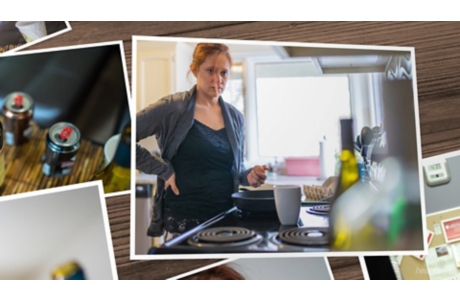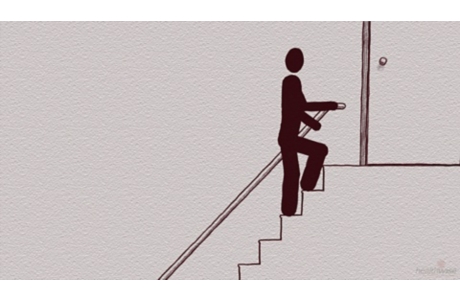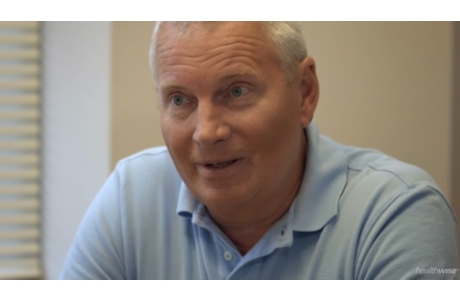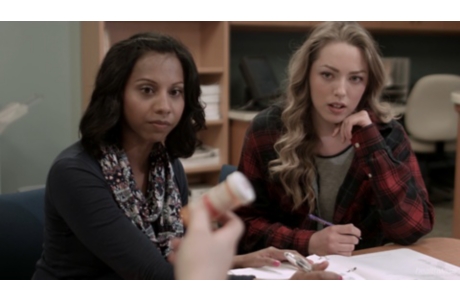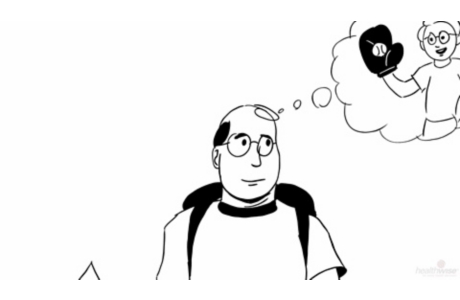Condition Basics
What is substance use disorder?
Substance use disorder means that a person uses substances even though it causes harm to themself or others. This disorder can range from mild to severe. It can develop from the use of almost any type of substance. This includes:
- Alcohol.
- Marijuana and other drugs.
- Prescription medicines.
- Over-the-counter medicines.
What drugs can lead to substance use disorder?
In addition to alcohol, almost any type of substance can lead to substance use disorder. Common ones include:
- Prescription medicines such as diazepam (Valium), methylphenidate (Ritalin), and opioids like hydrocodone (Norco) and oxycodone (OxyContin).
- Marijuana and other drugs such as heroin, meth, and cocaine.
- Over-the-counter medicines, such as cough syrups and cold pills.
- Hallucinogens, such as LSD, mescaline, psilocybin, and ketamine.
- Anabolic steroids.
- Household products that can be inhaled (inhalants). These include glues, aerosol sprays, and paint thinners.
What are the symptoms?
Some symptoms include:
- Not being able to cut down or control your use.
- Having strong cravings for the substance.
- Needing more of the substance to get the same effect, or getting less effect from the same amount over time (tolerance).
- Having uncomfortable symptoms when you stop using the substance or use less (withdrawal).
How is it diagnosed?
Substance use disorder may be diagnosed at a routine doctor visit or during a visit for a condition linked to substance use, such as anxiety or depression. Your doctor will ask questions about your symptoms and history of substance use and do a physical exam. The doctor may also do a mental health assessment.
How is substance use disorder treated?
The goal of treatment is to safely reduce or quit substance use. You may need medical care at first to manage withdrawal symptoms. Most people get some type of counseling. Medicines are often used to help control cravings, ease withdrawal symptoms, and prevent relapse.
Health Tools
Health Tools help you make wise health decisions or take action to improve your health.
What Increases Your Risk?
Certain things make it more likely that you will develop a substance use disorder. These are called risk factors.
Genetic and health risk factors
These include:
- Genes.
Genes play an important role in personality. As a result, substance use disorder often runs in families. Genes may influence whether you use substances and whether your substance use becomes substance use disorder.
- Mental health.
You're more likely to develop substance use disorder if you have a mental health condition, such as depression, post-traumatic stress disorder (PTSD), or an anxiety disorder. Treating mental health conditions makes substance use less likely. And if you have substance use disorder, treating mental health conditions makes recovery more likely.
Social and other risk factors
These include:
- Early use.
The earlier you start to use substances, the more likely you are to develop substance use disorder. This may be because early substance use changes the developing brain.
- How you use.
If you smoke a drug or inject it into a vein, you are more likely to develop substance use disorder. These methods give you a fast and intense "high," but you lose the high quickly and then feel low. This may cause you to use the substance more often.
- Environment.
You're more likely to use substances if you live in an area where they're easy to get and substance use is common.
- Family and friends.
You are more likely to use substances if your family members or friends use them.
- Problems with others.
You may be more likely to use substances when you are having problems in your family or with friends.
- Lack of purpose or satisfaction.
If you have no activities that give you a sense of purpose, you may be more likely to use substances.
Symptoms
The more symptoms of substance use disorder you have, the more severe it may be. Symptoms include:
- Using more of the substance or using it for a longer time than you ever meant to.
- Not being able to cut down or control your use.
- Spending a lot of time getting or using the substance or recovering from the effects.
- Having a strong need, or craving, for the substance.
- Not being able to do your main jobs at work, school, or home.
- Continuing to use, even though the substance use hurts your relationships.
- Not doing important activities because of your substance use.
- Using substances in situations where doing so is dangerous, such as driving.
- Using the substance even though it's causing health problems.
- Needing more of the substance to get the same effect, or getting less effect from the same amount over time (tolerance).
- Having uncomfortable symptoms when you stop using the substance or use less (withdrawal).
Behavior changes and physical signs of substance use
Signs that a person may be using substances such as drugs or alcohol include:
- Behavior changes, such as:
- Changes in sleeping or eating habits, such as trouble sleeping or eating more or less than usual.
- Paying less attention to dressing and grooming.
- Up-and-down moods, a mood or attitude that's getting worse, or not caring about the future.
- Sneaky behavior, lying, or stealing.
- Poor family relationships, or relationships that are getting worse.
- New problems at work or school, or problems with the law.
- Physical changes, such as:
- Red eyes, a sore throat, a dry cough, and feeling tired.
- Needle marks on the arm or other area of the body.
- Small "pinpoint" pupils in the eyes.
- Losing weight without trying.
Most of these changes are not specific to substance use. They may be signs of another problem, such as depression, stress, or another medical condition.
Symptoms of withdrawal
When you have substance use disorder and you stop using the substance, you may have physical symptoms known as withdrawal. These symptoms differ for each substance. They may include feeling sick to your stomach; vomiting; and having belly pain, sweats, nervousness and shaking, and seizures.
Watch
What Happens
Substance use can cause many problems. These may include:
- Health problems.
-
- Substance use can cause health problems such as heart disease, stroke, depression, or even overdose and death.
- You're more likely to have unsafe sex when you're using substances. And you may get and spread sexually transmitted infections (STIs).
- If you're pregnant, drugs can pass through your bloodstream to the placenta and harm your baby.
- Problems with thinking and remembering.
-
Substance use can affect judgment, decision-making, emotions, and learning.
- Personal problems.
-
- Substance use may cause you to do poorly at work or in school.
- You may have legal problems, like being arrested for driving under the influence (DUI).
- Your partner, family, or friends may be angry or upset with you.
Learn more
When to Call a Doctor
Call 911 or other emergency services immediately if you or someone else:
- Has overdosed or has withdrawal signs. Be sure to tell the emergency workers that you are or someone else is using or trying to quit using drugs. Overdose or withdrawal signs may include:
- Losing consciousness.
- Seizure.
- Seeing or hearing things that aren't there (hallucinations).
- Is thinking or talking about suicide or harming others.
Where to get help 24 hours a day, 7 days a week
If you or someone you know talks about suicide, self-harm, a mental health crisis, a substance use crisis, or any other kind of emotional distress, get help right away. You can:
- Call the Suicide and Crisis Lifeline at 988.
- Call 1-800-273-TALK (1-800-273-8255).
- Text HOME to 741741 to access the Crisis Text Line.
Consider saving these numbers in your phone.
Go to 988lifeline.org for more information or to chat online.
Call your doctor if:
- You think you have a problem with drugs.
- You are having withdrawal symptoms. These may include nausea or vomiting, sweating, shakiness, and anxiety.
Watchful waiting
Watchful waiting is a wait-and-see approach. Watchful waiting is not a good choice for substance use disorder. If you have this disorder, or if you believe that your health or other areas of your life are being affected by drugs, you can get help to stop using drugs.
A support group like Narcotics Anonymous (NA) can also help you and your family.
Exams and Tests
Substance use disorder may be diagnosed during a routine doctor visit. Or you may see your doctor for a health or other problem linked to substance use, such as anxiety, depression, or family conflict.
Diagnosing substance use disorder
Your doctor will ask questions about your symptoms and past health and do a physical exam. If your doctor thinks you have substance use disorder, your doctor may ask about current and past substance use and your family history of substance use.
Your doctor may ask you to have:
- A test to check for substance use, such as a urine or blood test.
- Tests to look for health problems related to substance use. These may include tests for hepatitis B, hepatitis C, or HIV.
If you and your doctor agree that you have substance use disorder, your doctor probably will refer you to a specialist who treats substance use.
Checking for a dual diagnosis
Many people who have substance use disorder also have a mental health condition, such as depression or an anxiety disorder. This is called a dual diagnosis. If this may be true for you, your doctor may do a mental health assessment.
If you have a dual diagnosis, you'll need treatment for both conditions. This gives you a better chance of a full recovery and less chance of using substances again.
Learn more
Treatment Overview
You and your doctor can decide what type of treatment might help you. If you are physically dependent on the substance, you may need to stay in a hospital at first. There you can be treated for withdrawal symptoms. Medicines are often used to help control cravings, ease withdrawal symptoms, and prevent relapse.
One of the goals of treatment is to help you reduce problems associated with substance use. This may include getting used to life without the substance. Counseling can help you prepare for people or situations that might tempt you to start using again. You can practice these skills through one-on-one counseling, family therapy, or group therapy.
Therapy may be part of inpatient treatment, where you stay in a treatment center. Or it may be part of outpatient treatment. This lets you fit therapy around your job or other duties. You might talk to your doctor or do an online search for local treatment programs.
Another goal of treatment is to help you find ongoing support for your sober life. Many people find support by going to group meetings. Examples include Alcoholics Anonymous, Narcotics Anonymous, or SMART Recovery. This type of support can help you feel less alone and more motivated to stay sober. Or you might tell a friend or loved one that you need help.
Learn more
Watch
Counseling
Treatment for substance use disorder usually involves one or more types of counseling, such as:
- Group therapy.
With this treatment, you talk about your recovery with other people who are trying to quit.
- Cognitive behavioral therapy (CBT).
In CBT, you learn to change the thoughts and actions that make you more likely to use substances.
- Motivational interviewing (MI) or motivational enhancement therapy (MET).
MI or MET helps you find your reasons for quitting and build on your personal strengths to help you succeed.
- Couples therapy or family therapy.
Couples or family therapy can help you to stop using substances, stay substance-free, and improve your relationships with your partner and family.
Learn more
Staying Sober After Treatment
Here are some ways to help you stay sober and prevent relapse.
- If you have been given medicine to help keep you sober or reduce your cravings, be sure to take it exactly as prescribed.
- Talk to your doctor about programs that can help you stop using drugs or drinking alcohol.
- Do not keep alcohol or drugs in your home.
- Plan ahead. Think about what you'll say if other people ask you to drink or use drugs. Try not to spend time with people who drink or use drugs.
- Use the time and money spent on drinking or drugs to do something that's important to you.
Preventing a relapse
- Have a plan to deal with relapse. Learn to recognize changes in your thinking that lead you to drink or use drugs. Get help before you start to drink or use drugs again.
- Try to stay away from situations, friends, or places that may lead you to drink or use drugs.
- If you feel the need to drink alcohol or use drugs again, seek help right away. Call a trusted friend or family member. Some people get support from organizations such as Narcotics Anonymous or SMART Recovery or from treatment facilities.
- If you relapse, get help as soon as you can. Some people make a plan with another person that outlines what they want that person to do for them if they relapse. The plan usually includes how to handle the relapse and who to notify in case of relapse.
- Don't give up. Remember that a relapse doesn't mean that you have failed. Use the experience to learn the triggers that lead you to drink or use drugs. Then quit again. Recovery is a lifelong process. Many people have several relapses before they are able to quit for good.
Learn more
Watch
Giving Support
If you have a family member or friend who is using drugs or other substances, it may be hard to know how to help. You can't force a person into treatment. But you can talk to the person and encourage them to get treatment. Here are some ideas that you can try.
- Choose a good time to talk.
Find a time when the person is not using substances, when you are both calm and not angry, and when you can speak in private.
- Be specific.
Tell the person that you are worried about their substance use and want to help. Give examples of how the person's behavior has affected you and how it made you feel.
- Spell out the consequences.
Tell the person what will happen if they refuse to get help, and be prepared to act. Stress that you aren't punishing them but that you're concerned about them, and you also want to protect yourself from any harm that their habit causes. For example, you may say that:
- You will no longer make excuses, such as if the person is late to work. The person will have to deal with the problems that substance use causes.
- You will no longer allow substance-using friends in the home, or you will move out.
- Be ready to take action.
Know ahead of time where and how to get help.
- If the person agrees to get treatment, call for an appointment right away. Don't accept "We'll call tomorrow."
- Offer to go to the first appointment or meeting.
- If needed, consider a group intervention.
Some people ask a group of people to help them talk to the person who has a substance use disorder. It's best to ask for help from a counselor or therapist who has had practice in group interventions.
Learn more
Related Information
Credits
Current as of: November 15, 2023
Author: Healthwise Staff
Clinical Review Board
All Healthwise education is reviewed by a team that includes physicians, nurses, advanced practitioners, registered dieticians, and other healthcare professionals.
Current as of: November 15, 2023
Author: Healthwise Staff
Clinical Review Board
All Healthwise education is reviewed by a team that includes physicians, nurses, advanced practitioners, registered dieticians, and other healthcare professionals.
